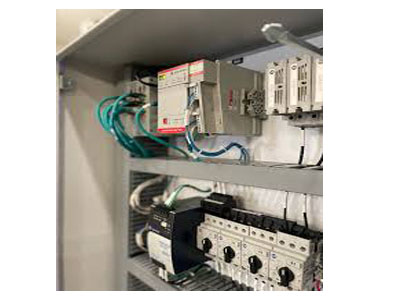What Are The Advantages Of MCC Panels?
Key Takeaway
Motor Control Center (MCC) panels offer several advantages for industrial and commercial settings. They provide centralized control for multiple electric motors, making operations more organized and efficient. With built-in safety features like overload relays and electrical interlocks, MCC panels ensure protection for both equipment and personnel. They simplify maintenance and troubleshooting, minimizing downtime and enhancing productivity.
MCC panels are designed for durability and environmental protection, often meeting IP54, IP65, or NEMA standards to safeguard against dust, moisture, and corrosion. They support industrial automation by monitoring and controlling motor operations continuously. Additionally, modular MCC panels reduce
Improved Safety and Protection Mechanisms
One of the most significant advantages of MCC panels is their emphasis on safety and protection. These panels are designed with a range of protective measures to prevent electrical hazards and equipment damage. Integrated circuit breakers, overload relays, and short-circuit protection ensure that any sudden surges or electrical faults are quickly detected and addressed. This not only protects the motors and connected equipment but also prevents potential risks like electrical fires and shocks.
The protective features of MCC panels are crucial in safeguarding personnel who work around these systems. Emergency stop buttons and clearly labeled controls are often included to enable rapid response in case of an unexpected incident. By minimizing the risk of electrical failures and hazardous situations, MCC panels create a safer work environment for all employees.

Enhanced Energy Efficiency
MCC panels contribute to significant energy savings by optimizing motor performance and power distribution. Modern MCC panels are equipped with energy-efficient motor starters and variable frequency drives (VFDs) that help regulate motor speed and power consumption according to the demands of the process. This means that energy is used more efficiently, reducing overall power consumption and lowering electricity costs.
The ability to control motors precisely allows for better adaptation to changing operational conditions. For example, motors can run at lower speeds during non-peak times or when full power isn’t necessary. This adaptability prevents wasted energy, contributes to lower utility bills, and aligns with eco-friendly practices. Moreover, energy-efficient systems help industries meet sustainability goals and comply with regulations that aim to reduce carbon emissions.
Centralized Control and Monitoring
MCC panels offer centralized control and monitoring of multiple motor circuits within a single unit. This consolidation improves operator efficiency by allowing control of all motors and electrical equipment from a single location. With this centralized setup, engineers and technicians can easily start, stop, or modify motor operations without having to access multiple individual panels or components.
Centralized monitoring also provides valuable real-time data on motor performance, enabling operators to track key parameters such as current, voltage, temperature, and running hours. This comprehensive view of the system enhances the ability to diagnose issues quickly, implement timely repairs, and reduce operational disruptions. The integration of digital controls and touch-screen interfaces in modern MCC panels further simplifies this monitoring and control process, making it more user-friendly.
Scalability for Expanding Operations
Another advantage of MCC panels is their scalability, which is essential for businesses anticipating future growth. MCC panels are designed with modular components that can be added or reconfigured as production needs increase. This adaptability makes it easier for industries to expand their operations without needing to replace or overhaul existing infrastructure.
Scalable MCC panels allow for seamless integration with new equipment or additional motor circuits, providing a cost-effective way to meet changing demands. Companies can customize their MCC systems with the latest control and protection technologies as needed, which helps maintain high operational standards and supports long-term business growth.
Reduced Maintenance and Downtime
MCC panels are designed to minimize maintenance requirements and reduce equipment downtime, leading to more efficient and productive operations. The use of modern components with self-monitoring capabilities helps identify issues before they escalate, enabling preventive maintenance rather than emergency repairs. This proactive approach can save time and costs associated with unplanned downtime and equipment failure.
Additionally, MCC panels are built with high-quality materials that are resistant to wear and tear, which extends the life of the equipment. Easy access to components for inspection and servicing means that any necessary maintenance tasks can be carried out quickly and efficiently. With reduced downtime, industries can maintain continuous operations, boost productivity, and minimize losses.
Conclusion
MCC panels provide multiple advantages, making them indispensable in industrial settings. Their superior safety and protection mechanisms ensure a secure working environment, while energy efficiency measures contribute to cost savings and sustainability. Centralized control and monitoring simplify operations, and the scalability of MCC panels supports future growth. Most importantly, the reduced maintenance needs and minimized downtime help keep industrial operations running smoothly. Emphasizing the benefits of MCC panels highlights why they remain a key component in optimizing industrial processes.
